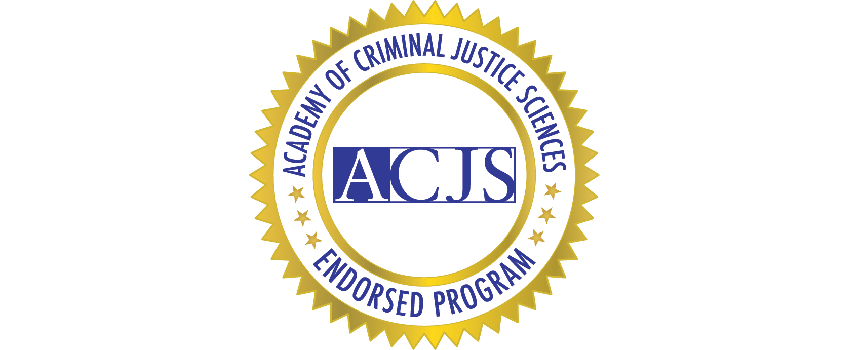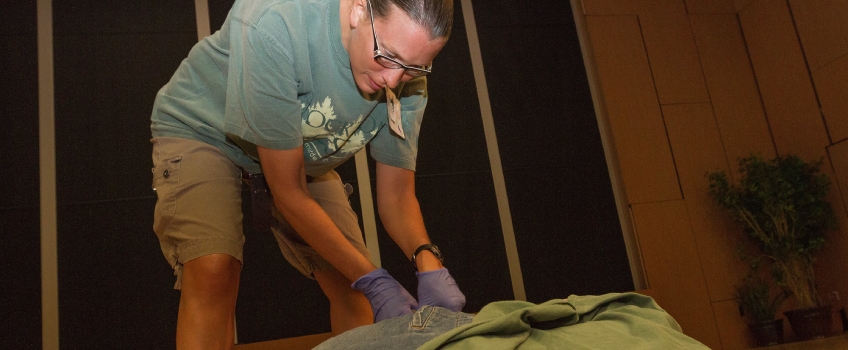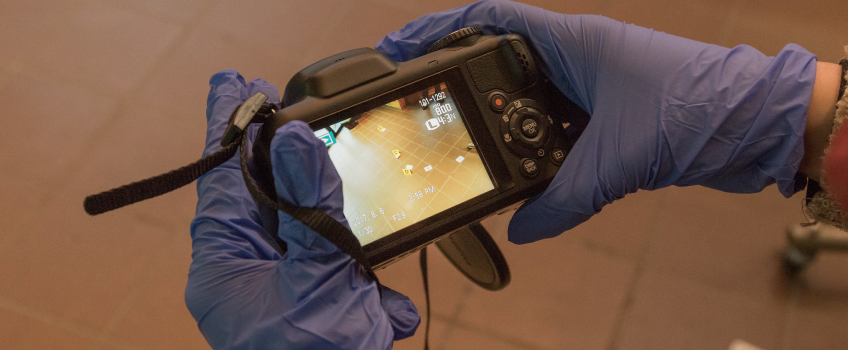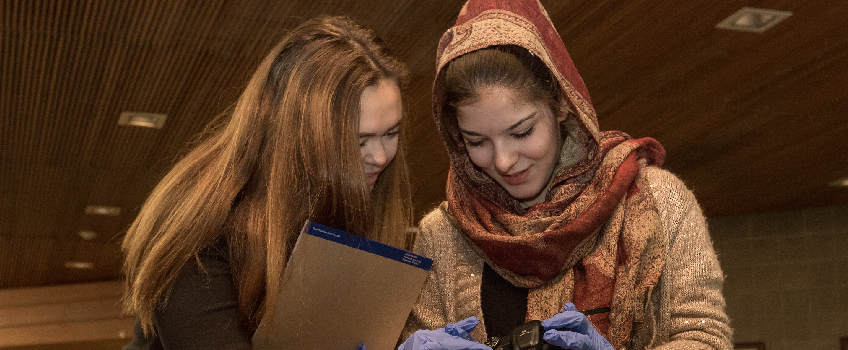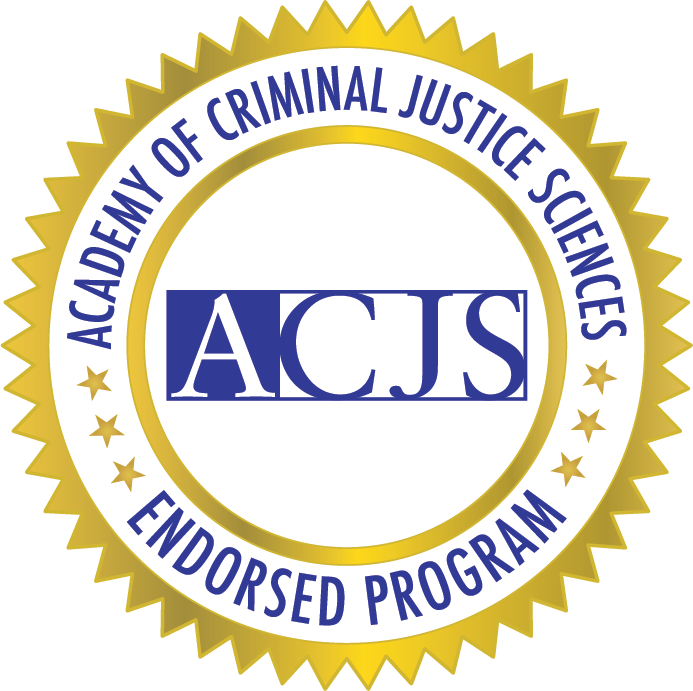Bachelor of Science in Criminal Justice
At Stockton University, the Criminal Justice (CRIM) program is dedicated to offering students a comprehensive understanding of the criminal justice system through the lens of social sciences.
The program emphasizes an academic foundation, offering in-depth analysis and understanding of the criminal justice system's role in society, while also equipping students with versatile skills applicable across various professional pathways.
Stockton's Bachelor's degree in Criminal Justice is the first in the nation to receive the Academy of Criminal Justice Sciences (ACJS) Endorsement for academic quality. When assessed in relation to the ACJS Academic Quality Standards, the program Exceeded the standards required to earn the endorsement.
About the Program
To achieve our mission, the program plans to:
- Have students learn different theories of crime and criminality and their applicability to criminal justice issues.
- Have students understand principles of criminal justice research.
- Have students apply basic statistical concepts.
- Encourage students to think critically and evaluate the quality of sources of information.
- Provide students with a greater understanding of the police and the issues confronting law enforcement.
- Provide students with a greater understanding of the courts, legal system, and Constitution and the critical issues confronting these entities and their place in the criminal justice system and our society.
- Provide students with a greater understanding of corrections and the issues confronting the corrections systems.
- Teach students about the complex relationships between diverse groups and the U.S. criminal justice system.
- Introduce students to comparative and global issues related to the criminal justice system.
- Introduce students to ethical considerations in criminal justice work.
- Prepare students to continue their education at the graduate level.
- Expose students to topics in criminal justice through different modes of experiential learning.
Program Chair

Program Vision
The vision of the Criminal Justice program is to provide a broad knowledge of the criminal justice system while providing students with content on the specific trends, challenges, and advances in the field. In order to do that we:
- Ensure our curriculum is current and course content is up to date.
- Assess content in all of our core courses, make adjustments, and report results back to the program.
- Provide students with relevant opportunities to participate in academic and career development programs, including the Criminal Justice Career Series and the Criminal Justice Lecture Series.
- Provide students with vital information and career opportunities via email, Facebook, LinkedIn, and Twitter.
- Work together as faculty to create by-laws and a governing structure for our program to ensure all faculty have a voice.
Program Mission
The Criminal Justice program mission aligns with the University mission.
Student Testimonials
I've gained a vast knowledge of our legal system and the overall structure of prisons and jails. I've also gained a lot of connections through professors who used to be police officers and state troopers.
By providing me with interesting and thought-provoking classes, my growth and certainly love for the criminal justice field has broadened tremendously. The staff wants students to succeed and often will offer off-hour meetings to help any interested students, which I often take full advantage of.
When I was a junior in high school I had about 50 colleges on my list, ranging from California to Florida to Maine... I knew pretty quickly after attending the IDD, visiting campus, and meeting professors and faculty that Stockton University was the right school for me. I fell in love with Stockton’s location nestled within the Pine Barrens, the “schmedium” campus size, and how incredibly kind and caring everyone was.
Curriculum
Criminal Justice students are not required to pursue a concentration but may choose to focus their study on one of the following area of interest:
Forensic Psychology involves applying psychology to the field of criminal investigation and the law.
What will I learn?
- Culpability states including insanity and competence to stand trial
- Development of the criminal personality
- Evaluation of the risk of reoffending
- Testimony as an expert witness
- Child custody evaluations
Where can I find jobs?
- Federal agencies such as the Federal Bureau of Investigation (FBI), Central Intelligence Agency (CIA), Alcohol, Tobacco and Firearms (ATF), U.S. Secret Service, Drug Enforcement Administration (DEA).
- Probation, parole, and correctional facilities
- Mental health facilities
- Group homes, family services, and juvenile justice agencies
- Law enforcement offices; private security firms; insurance companies
Contact:
Joshua Duntley, Associate Professor of Criminal Justice
Office: G251 | Phone: 609-626-3570
Email: joshua.duntley@stockton.edu
Office: F128 | Phone: 609-652-4585
Email: kimberley.schanz@stockton.edu
What courses do I need to take?
Foundation course requirements
- PSYC 1100 Introduction to Psychology
- PSYC 2211 Psychopathology
- CRIM/PSYC 3120 Legal and Forensic Psychology
- SOCY 1100
Electives: Students must take TWO:
- PSYC 2301 Social Psychology
- PSYC 3302 Personality
- PSYC 3618 The Psychology of Child Victims
Forensic Investigation is an overview of crime scene investigation, blood spatter examination, crime scene photography, fingerprint examination, ballistics, and criminal behavior.
What will I learn?
- The importance of forensic evidence in the criminal justice system
- The significance of eye witness testimony
- The legal parameters of forensic investigation
- The collection, presentation, and transportation of evidence to the laboratory
Where can I find jobs?
- Federal agencies such as the Federal Bureau of Investigation (FBI), Central Intelligence Agency (CIA), Alcohol, Tobacco and Firearms (ATF), U.S. Secret Service, Drug Enforcement Administration (DEA)
- Medical Examiners' Offices
- Law enforcement offices; private security firms; insurance companies
Contact:
Office: H242 | Phone: 609-626-3133 Email: william.dineen@stockton.edu
What courses do I need to take?
Foundation course requirements
- CRIM 2110 Introduction to Forensic Science
- CRIM 2358 Medico-Legal Death Investigation
- CRIM 2611 & 2612 Forensic Science Lab I & II
Homeland Security is a set of courses that focus on terrorism, federal law enforcement, intelligence, military strategy, policing, national and global security, disaster management, and emergency preparedness.
What will I learn?
- Terrorism and effective counter-terrorism strategies.
- The role of government during disasters.
- Political climates that bring about stability and instability.
- Emergency response and policy regarding natural disasters/pandemics.
- The role of security in protecting the population, civil liberties, and freedom
Where can I find jobs?
- Federal agencies such as the Federal Bureau of Investigation (FBI), Central Intelligence Agency (CIA), Alcohol, Tobacco and Firearms (ATF), U.S. Secret Service, Drug Enforcement Administration (DEA)
- Medical Examiners' Offices
- Law enforcement offices; private security firms; insurance companies
Contact:
Office: C122 | Phone: 609-652-4453
Email: jess.bonnan-white@stockton.edu
What courses do I need to take?
Foundation course requirements:
- CRIM 2211 Terrorism
- CRIM 2216 Homeland Security
Concentration Electives (Choose TWO):
- ANTH 2245 Race, Ethnicity, Immigration
- CRIM 2345 Cybercrime OR GEN 3643 Cyber-Security
- POLS 2160 Introduction to Comparative Politics
- POLS 2170 Introduction to International Politics
- POLS 2190 Introduction to Public Policy
- POLS 3313 International Order
- BUSA 3125 Intro to Data Visualization
- BUSA 3135 Predictive Data Analytics
- POLS 2274 U.S. Foreign Policy
- POLS 3225 Civil Liberties
- POLS 3628 Contentious Politics
- POLS 3625 Campaigns & Elections
- POLS 2209 State/Local Government
- POLS 3345 Politics of Immigration
- PUBH 3420 Epidemiology
- HIST 3630 War, Refugees, Humanitarianism
- SUST 3325 The Global Environment,Health & Justice
- CIST 3381 Information Assurance
- COMM 3315 PR Crisis Communication
- CSIS 3230 Computer Networking Principles
- MGMT 3190 Business Continuity Management
Student Learning Outcomes
- Identify issues in the practice of criminology and criminal justice.
- Gain the knowledge of the specific and independent but interdependent roles of the police, the courts, and corrections in the criminal justice system.
- Critically analyze the complex relationships between diverse groups and the U.S. criminal justice system.
- Apply criminological theory to real-world problems.
- Understand research related to criminal justice and its role in shaping criminal justice policy.
- Develop skills necessary for practitioners, advocates, academics, and organizational leaders in criminal justice-related fields.
Curriculum Worksheets & Degree Maps
Bachelor of Science Curriculum Sheets & Maps
Curriculum Worksheets
Degree Maps
B.A in Criminal Justice Curriculum Sheets
Curriculum Worksheets
B.A CRIM Curriculum Worksheets
BA/MA CRIM Dual Degree Curriculum Worksheet
Degree Maps
BA CRIM General Map
BA CRIM Forensic Investigation Map
BA CRIM Forensic Psychology Map
BA CRIM Homeland Security Map
BA/MA DUAL CRIM Degree Map

Dual BS/MA Degree Program in Criminal Justice
The Dual BS/MA Degree Program in Criminal Justice is designed to offer students a broad, multidisciplinary and multidimensional perspective of the criminal justice system. Students will embark on an intensive academic experience for five years. This program includes all of the liberal arts courses that all Criminal Justice students at Stockton are expected to take, plus all the undergraduate and graduate core Criminal Justice classes.
Students have the choice of either completing the requirements for the Master's Degree as a generalist student, or they may choose to take courses to complete a track in Administration & Leadership, Forensic Psychology, or Homeland Security.
This is an intense program. To ensure the successful completion of the program working many hours outside of school is not recommended. New students may apply for dual-degree status by checking the box for dual degree on the admissions application. Current Stockton students who are interested in switching to the dual degree program must contact the coordinator of the dual degree program, Dr. Kimberley Schanz. Once accepted into the program, students may decide to major in something other than Criminal Justice or graduate with a B.S. degree only, by notifying the Criminal Justice program and the University in writing.
Eligibility
Two types of students may apply for admission to the dual degree program in criminal justice:
Students expressing an interest in the dual degree program in Criminal Justice must :
- have a 3.7 GPA from high school, AND,
- demonstrate math, writing, and reading readiness through either:
- Accuplacer scores of 255 Math, 250 Writing, and 250 Reading, OR
- 570/24 Math SAT/ACT, and 520/20 Reading /Writing SAT/ACT
For students who do not submit SAT/ACT scores, they will be conditionally accepted to CRIM Dual Degree based on their high school GPA. They will be officially accepted into the dual degree program once their Accuplacer scores are in and they meet the above criteria.
Once enrolled at Stockton, students will have to maintain a GPA of 3.3 each semester in order to maintain their eligibility in the dual degree program.
Criminal Justice students who are already enrolled at Stockton but were not admitted to dual degree as incoming freshman may apply to dual degree immediately following the completion of freshman year if they have maintained at least a 3.3 GPA each semester.
These students may apply for early, conditional admission if they have a GPA of at least 3.3 from their sending institution. Students will be expected to maintain a minimum GPA of 3.3 each semester in order to maintain eligibility in the dual degree program. The program will accept a maximum of 64 undergraduate transfer credits, but students with that many transfer credits will likely have to take either summer classes or an extra semester to graduate on time. (Students entering Stockton with an Associate's Degree will have 64 credits by the end of their sophomore year, but dual degree candidates will have completed or need to complete at least 68 credits by that time.)
All students must complete their General Studies and non-social and behavioral science electives by the end of their junior year. By the time students begin to take graduate courses in their senior year, they should have at most six credits of cognates (social and behavioral science courses) remaining.
HOW TO APPLY
Students apply as undergraduates through the Office of Enrollment Management as part of the regular freshman or transfer student admission process.
Current Stockton students should contact Dr. Kimberley Schanz directly to determine eligibility.
Contact
Kimberley Schanz, Associate Professor of Criminal Justice
Office: F128 I Phone:609-652-4585
Email:kimberley.schanz@stockton.edu
Criminal Justice Program Faculty

Jess Bonnan-White

Deeanna Button
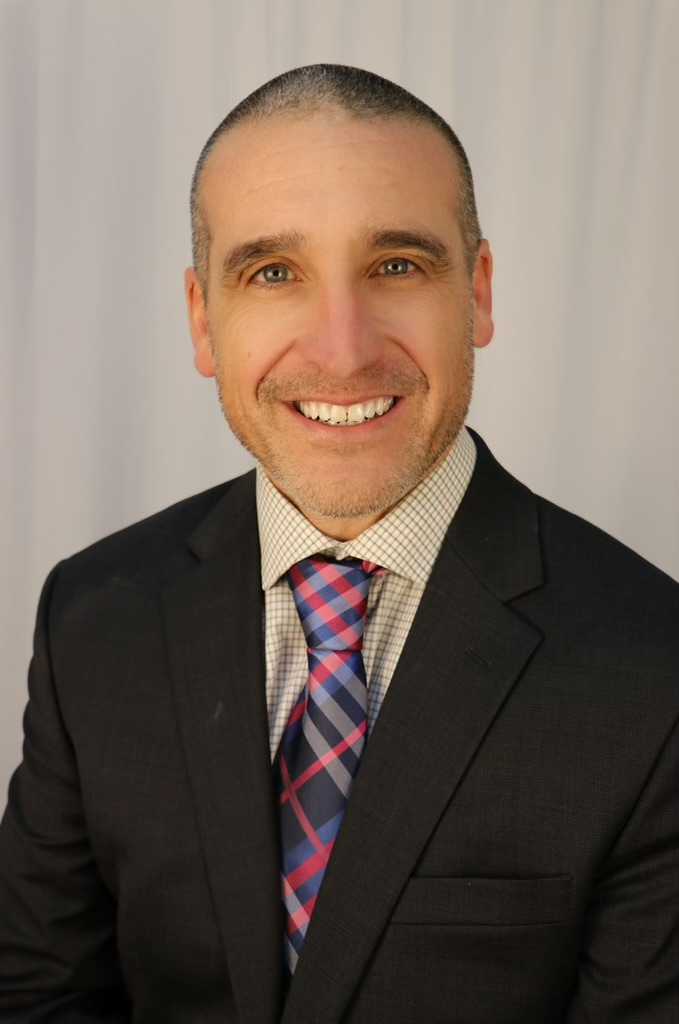
William Dineen
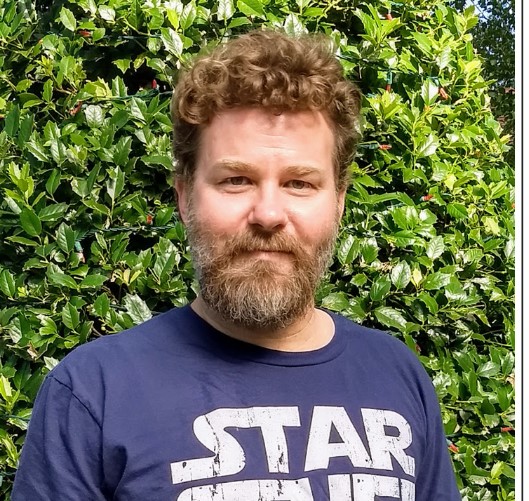
Joshua D. Duntley

Syeda T. Hadi
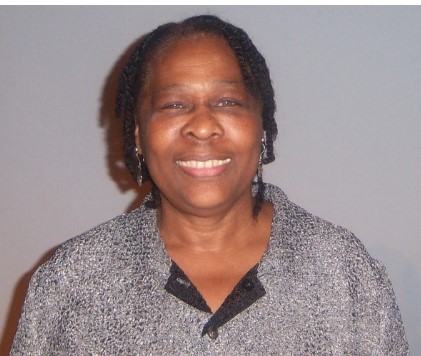
Janice O. Joseph

Katherine Kafonek

Marissa P. Levy

Ruibin Lu

Manish Madan
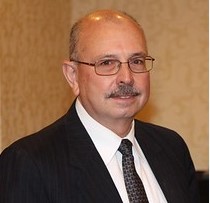
William McKnight

Richard Mulvihill

Kimberley R. Schanz

Amy Yingyi Situ-Liu
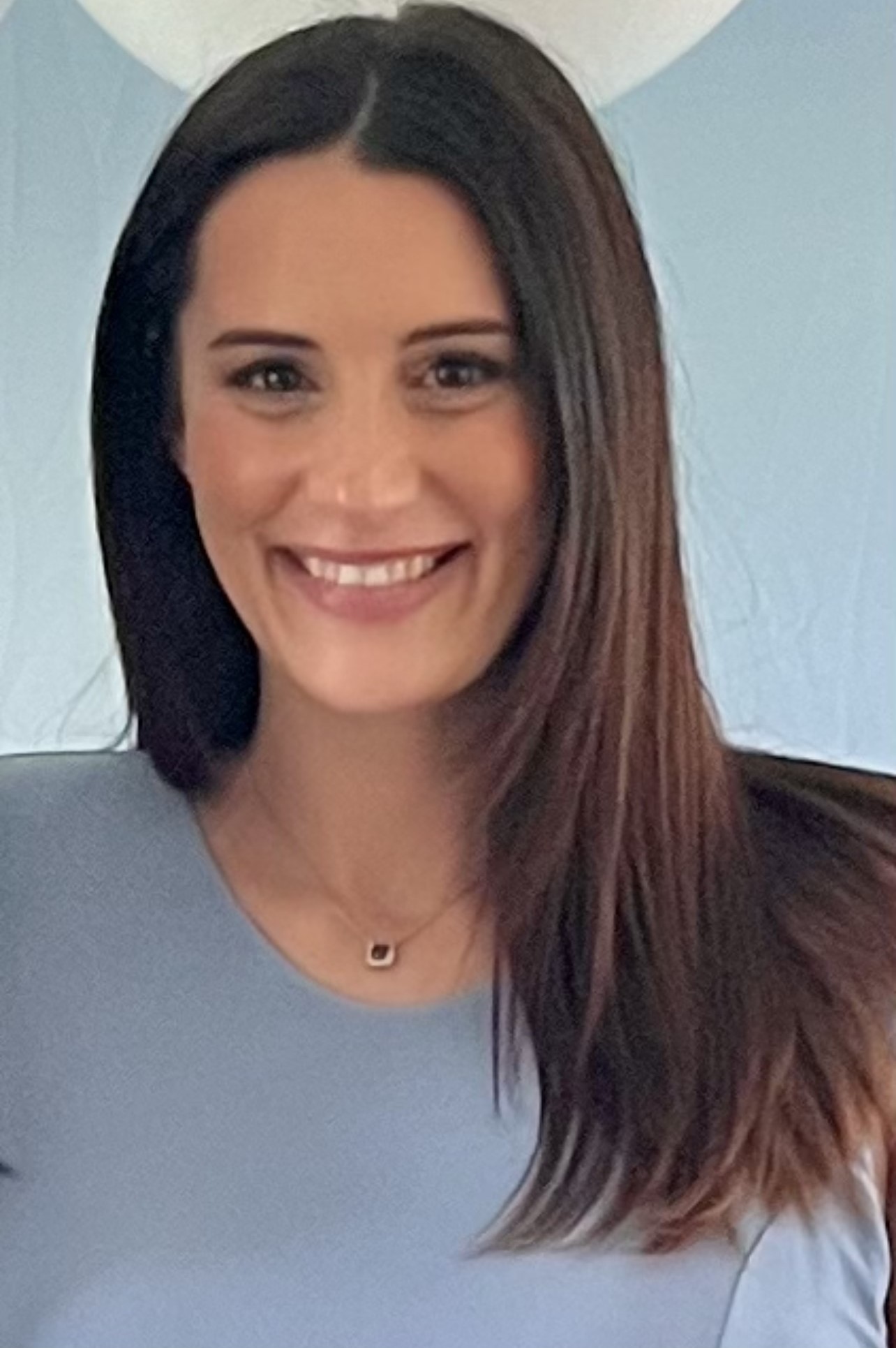
Barbara LeClair

Christine Tartaro
PROFESSORS EMERITI

Rupendra Simlot

Marcia R. Steinbock
Certificate Program in Forensic Science

The certificate program in forensic science is designed to provide a focus for those students who are interested in pursuing a career in forensic science. This program is specially designed for students majoring in Chemistry, Biochemistry or Biology and for those who have already graduated but would like to pursue a career in forensic science by taking additional courses. Criminal justice majors may also complete the program.
A student who completes the program will be knowledgeable about the criminal justice system, a systematic search at the crime scene, proper procedures for collection, packaging and preservation and transportation of physical evidence, methods of analysis of physical evidence using the knowledge of science and the significance of expert witness testimony.
Contact:
Office: H242 | Phone: 609-626-3133
Email: william.dineen@stockton.edu

Special Programs
 The Criminal Justice Internship Program is a cooperative effort between Stockton's
Criminal Justice Program and public or private criminal justice agencies. Internships
give students the opportunity to apply their Criminal Justice education to actual
work situations. Students will apply the knowledge and skills learned in the classroom
to supervised work experiences at selected agencies, working under the supervision
of both Criminal Justice faculty members and professionals in the field. Internships
are available in the Fall, Spring, and Summer semesters.
The Criminal Justice Internship Program is a cooperative effort between Stockton's
Criminal Justice Program and public or private criminal justice agencies. Internships
give students the opportunity to apply their Criminal Justice education to actual
work situations. Students will apply the knowledge and skills learned in the classroom
to supervised work experiences at selected agencies, working under the supervision
of both Criminal Justice faculty members and professionals in the field. Internships
are available in the Fall, Spring, and Summer semesters.
Students may earn up to eight (8) credits for internships at the undergraduate level. Students are required to complete 140 hours of service at the agency, keep a journal, and write a research paper during the internship semester in exchange for 4 credits, and 70 hours of service at the agency for 2 credits. Students will also be required to complete academic work, such as a journal of their daily activities at the agency and a research paper on the agency itself.
The application deadlines are as follows:
- Spring internship deadline is October 20,
- Summer internship deadline is March 1
- Fall internship deadline is May 1.
An application must be completed and the background check paid for and initiated by that date in order to the eligible for the following semester’s internship.
Students will:
- Gain practical, on-the-job experience in professional settings
- Clarify career goals and assess readiness to enter a chosen profession
- Integrate knowledge learned in the classroom with real-world employment situations
Requirements are:
- Must be a Criminal Justice major
- Must have Junior or Senior class standing
- GPA of 2.5 or higher
- Have taken CRIM 2140 or 2141 (Research Methods) and passed with a C or better
- Must meet all application deadlines
- Must pay for and pass a criminal background check
- Must meet any agency-specific requirements
Criminal justice students with a concentration in Forensic Investigations are required to meet the above requirements as well as having completed the required courses for the concentration. These students are required to work 280-300 hours in exchange for 4 credits. For more information and to apply, please visit SOBL Academic Internships webpage.
Contact:
Office: H225 | Phone: 609-626-6139 | Email: elyse.richmansmith@stockton.edu
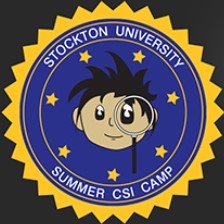 The Stockton CSI summer camp is designed to immerse high school students in the process of investigating a criminal
case and bringing it to trial.
The Stockton CSI summer camp is designed to immerse high school students in the process of investigating a criminal
case and bringing it to trial.
Campers investigate a staged homicide scene, request forensic analyses on the evidence they collect, question witnesses, prepare a case for trial, and present the case in front of a mock judge and jury. Every step of the way, the campers learn from professionals in the field, including police investigators, criminologists, forensic psychologists, attorneys, medical examiner investigators, and corrections officers. There are also two field trips -- one to the county medical examiner's office and another to the county jail.
Contact:
Office: G250 | Phone: 609-626-3570 | Email: joshua.duntley@stockton.edu
Office: G252 | Phone: 609-626-6035 | Email: christine.tartaro@stockton.edu
